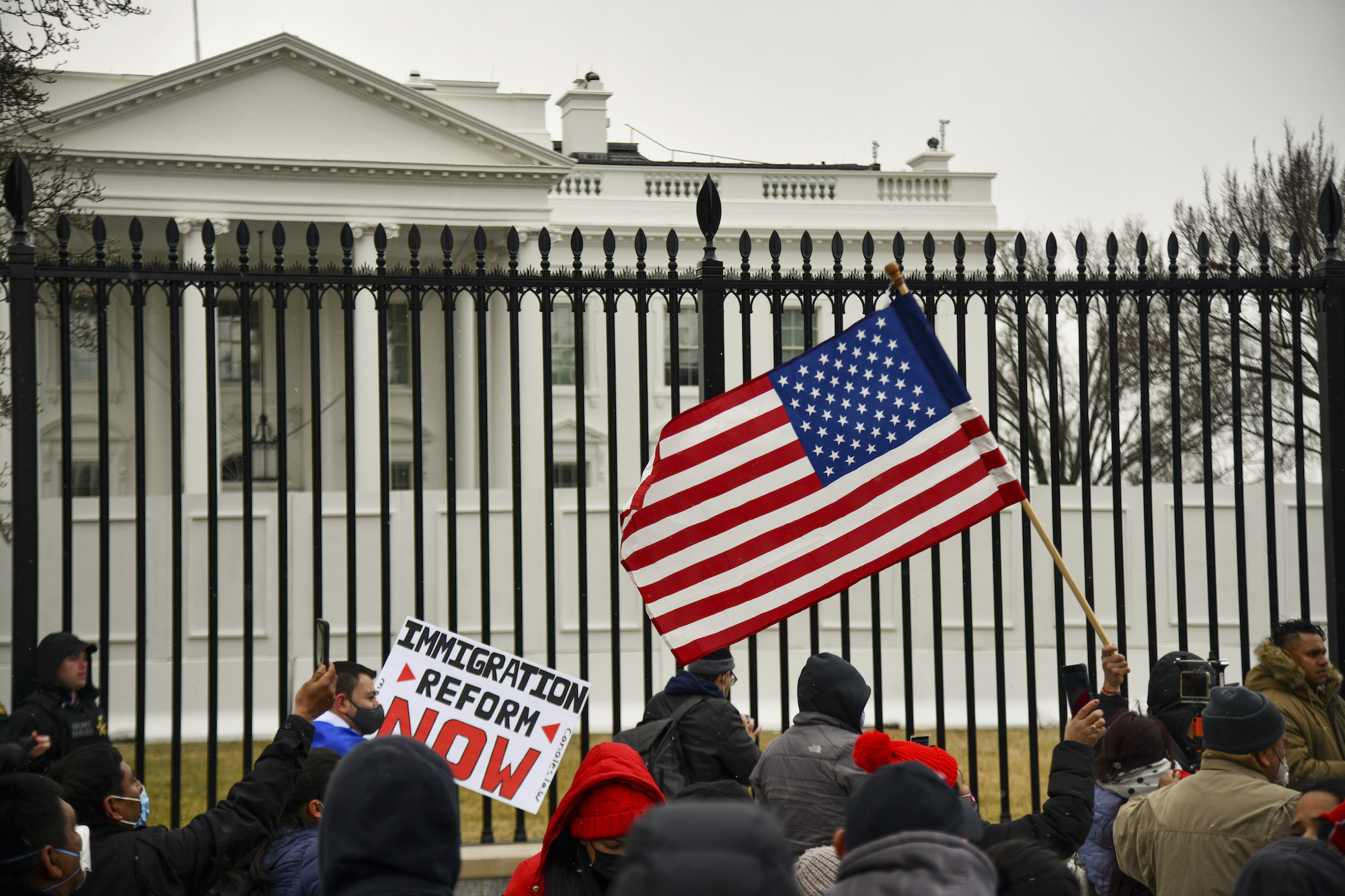ACLU, Federal Defender’s Office Argue to Supreme Court that First Amendment Protects Speech that Merely Encourages Undocumented Persons to Remain in U.S.
A federal law that prohibits encouraging an immigrant to remain in the country unlawfully criminalizes a substantial amount of constitutionally protected speech.
WASHINGTON — The Federal Defender’s Office for the Eastern District of California and the American Civil Liberties Union last week filed a brief on behalf of Helaman Hansen in United States v. Hansen urging the U.S. Supreme Court to hold that a federal law making it a felony to encourage noncitizens to reside in the U.S. unlawfully violates the First Amendment.
The “encouragement provision” makes it a crime to “encourage or induce” a noncitizen to enter or reside in the U.S. in violation of law. Last year, the Ninth Circuit Court of Appeals ruled that the provision is unconstitutional because it prohibits a substantial amount of constitutionally protected speech.
Because it prohibits all “encouragement,” the provision makes it a crime for a grandmother to express a wish that her undocumented grandchild not leave the country, or for an attorney to advise that a noncitizen will forfeit statutory or constitutional rights or benefits if she leaves the country. It would even make it a crime for a priest to inform an undocumented person that the congregation will provide him support.
As the brief explains, this broad prohibition on mere encouragement reaches speech that is plainly protected by the First Amendment. The Supreme Court has long held that the government can penalize advocacy of criminal activity only under very stringent circumstances. This law includes none of those safeguards.
The law even makes it a crime to encourage conduct, such as residing in the United States without a valid visa, that is not itself a crime at all. In this case, Mr. Hansen was charged with encouraging two noncitizens to reside here after their visas expired, which is merely a violation of civil immigration laws, not a crime.
“The encouragement provision criminalizes protected speech,” said Carolyn Wiggin, Assistant Federal Defender and counsel of record for Mr. Hansen. “Contrary to the government’s argument, encouraging a person to overstay their visa is not a crime because overstaying a visa is not a crime. The government is trying to punish speech about an activity more harshly than it punishes the activity itself.”
“The Supreme Court should not expand the category of speech that can be criminalized to include speech that merely encourages conduct that is not a crime,” said Esha Bhandari, deputy director of the ACLU Speech, Privacy, and Technology Project. “The encouragement provision chills a large amount of constitutionally protected, everyday speech to and about the tens of millions of noncitizens in the country. To permit the government to make speech a crime when it does not even encourage criminal activity would be unprecedented.”
United States v. Hansen is a part of the ACLU’s Joan and Irwin Jacobs Supreme Court Docket.
The brief can be found online here.
Stay Informed
Every month, you'll receive regular roundups of the most important civil rights and civil liberties developments. Remember: a well-informed citizenry is the best defense against tyranny.





